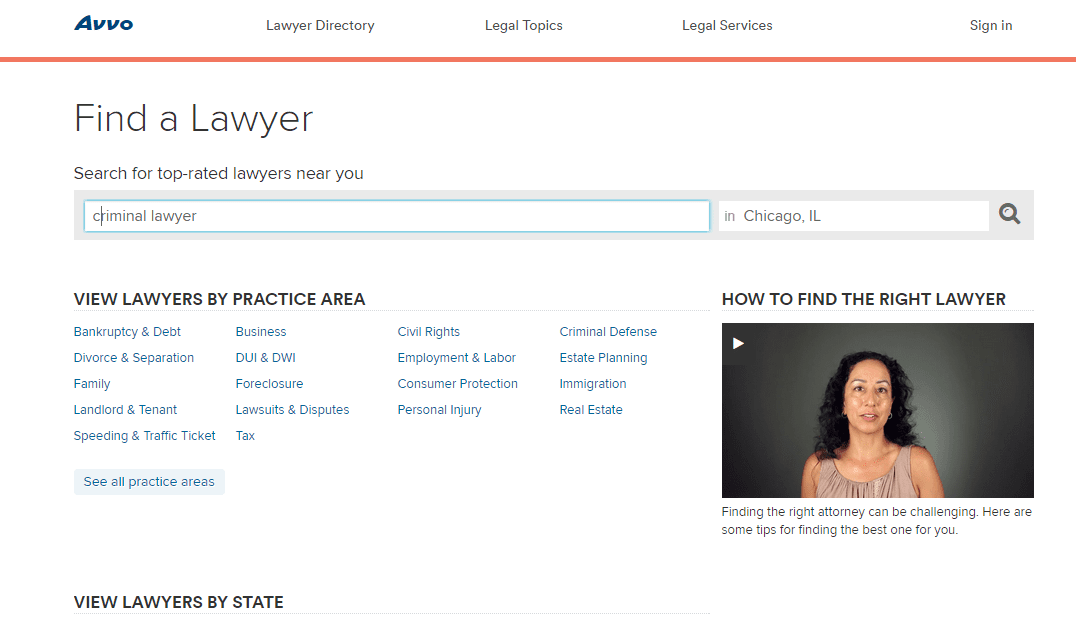3-Step Guide to Hiring a Criminal Defense Lawyer
Hire an inexperienced hairdresser, and you could end up with a bad haircut. Hire an unqualified math tutor, and your SAT scores might not be as high as they could be. Hire a bad DJ, and your guests could leave your party disappointed.
But hire the wrong criminal defense attorney, and your entire future will be jeopardized.
When it comes to major life decisions, hiring a criminal defense attorney may be the important choice you’ll ever make. Being charged with any type of crime is a very serious matter, and a highly qualified attorney may be the only thing standing between you and tough penalties. If you are convicted of a crime, you are not only facing prison time and hefty fines, but a lifelong criminal record that can limit your future job, housing, and educational prospects.
Any type of criminal charge in Illinois warrants representation from an experienced and knowledgeable defense attorney. A good criminal lawyer will be able to help you understand the charges against you and build a powerful defense to obtain the best outcome to your case. With a top Chicago defense attorney on your side, you are in the best position possible to have your charges reduced or dropped altogether.
So hire do you find the criminal attorney that is right for your particular case? Below, we’ve included a 3-step guide to finding the best criminal defense attorney possible for your unique charge.
Step One: Start Your Search

To start your search, you may choose to seek referrals from friends, families, and coworkers. If you do not want to publicize your criminal charge, however, you may opt for a more private search using an online directory such as Avvo.com, HG.org, Martindale.com, or Nolo.com. Using such sites, you can search for criminal attorneys by location and practice area, and uncover useful information about prospective candidates such as rating, background, and credentials.
Step Two: Narrow down prospects.
Once you have some ideas, you should narrow your list of prospective candidates down to two or three by doing a thorough search of their background, experience, and areas of expertise. Ideally, you’ll want an defense attorney who works primarily in your area and is familiar with your jurisdiction’s unique laws and court system.
Look at your prospective criminal lawyer’s website, review sites, and any articles or information published about their firm to determine their experience and expertise. You’ll want a defense attorney who has experience defending your particular crime and has a track record of success. It’s also important to choose a criminal lawyer who is in good standing with the Illinois bar association.
Step Three: Meet with prospective candidates.
Before hiring a defense attorney, it is essential to meet with him or her and ensure you will feel comfortable and confident working together. When you meet with a prospective candidates, they should be able to explain the charges you are facing, help you understand what to expect, and outline some possible strategies for defense.
Be sure to speak honestly and openly with prospective criminal lawyers, and ask for clarification on issues you are confused with or interested in learning more about. To assess a defense attorney’s experience and expertise, you should consider asking the following questions:
- Do you have experience defending charges similar to mine?
- How many jury trials have you handled?
- How often do you negotiate plea bargains?
- How much of my case will you handle personally?
- Can you provide me with any references?
Most respected lawyers will likely have a FAQ section on their website, but it’s still valuable to ask these questions in person to gauge their ability to think on their feet.
Above all, it’s important that you feel your criminal attorney is someone you can trust and get along with. You and your defense lawyer will work together closely throughout the duration of your case, and you may be entrusting him or her with your future and freedom.
About the Author:
Andrew M. Weisberg is a former felony prosecutor who now serves as a defense attorney in the greater Chicago area. He has extensive experience in handling all types of criminal cases, from sex offenses and domestic violence to retail theft-related crimes, Murder, and drug crimes.







 Blog Home
Blog Home 










